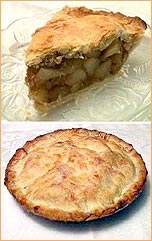Hand-Crank Generator DIY STEM Kit
$9.99$6.50
 Despite the temperatures being equal, your tongue is still more likely to get burned by the filling than the crust, though. There are 2 principles behind this: thermal conductivity and specific heat capacity.
Despite the temperatures being equal, your tongue is still more likely to get burned by the filling than the crust, though. There are 2 principles behind this: thermal conductivity and specific heat capacity.
 'To myself I seem to have been only like a boy playing on the seashore, and diverting myself in now and then finding a smoother pebble or a prettier shell than ordinary, whilst the great ocean of truth lay all undiscovered before me.'
'To myself I seem to have been only like a boy playing on the seashore, and diverting myself in now and then finding a smoother pebble or a prettier shell than ordinary, whilst the great ocean of truth lay all undiscovered before me.'